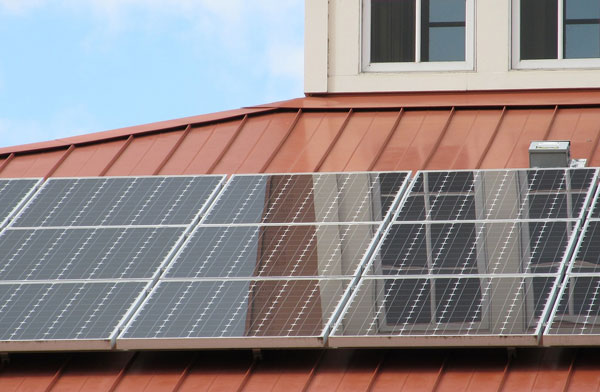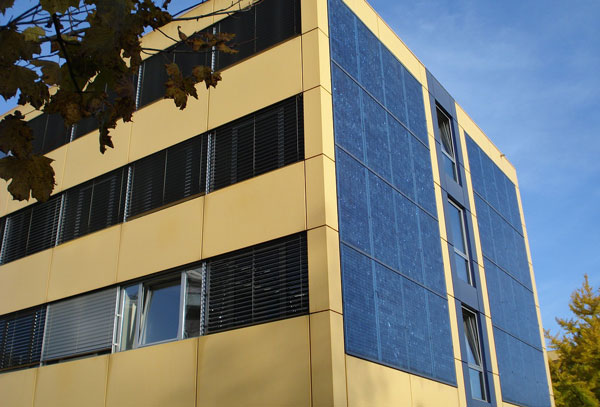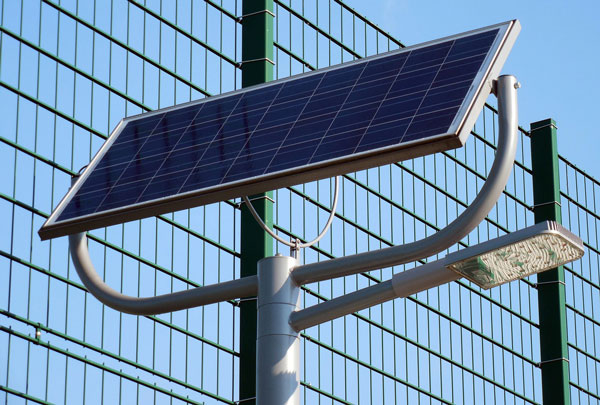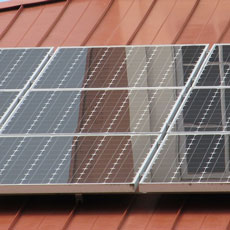
There are lots of reasons for businesses to switch from electricity to solar.
Tax breaks, financial incentives and increased property values are attractive to owners, while the ease of maintenance and long lives of solar panels are a boon to the property managers.
Though the upfront capital investment can be large, it’s an investment that has a solid, ongoing return, (plus, the environmental benefits and company goodwill are nearly incalculable).
Solar is a Sound Financial Investment
EnergySage founder and CEO Vikram Aggarwal is a big believer in businesses going solar. In an article for Inc.’s Vision 2020, Aggarwal writes that businesses large and small benefit financially from making the switch from electricity to solar.
“Solar panel systems are a smart capital investment,” he says. “They have short payback periods, provide steady financial returns, and help business owners hedge against rising energy prices.”
You don’t have to limit your panel installation to building roofs, by the way. Sara Matasci at EnergySage highlights the dual advantages of solar canopy installations. “Businesses across the country are building solar parking lots that provide shade for cars while simultaneously generating renewable energy — and they’re saving thousands of dollars on electricity bills in the process.”
As for how much you’ll save, that depends. There are online calculators that give you a very rough idea, such as the one at Solar Power Rocks. This one calculates energy bill savings of about $2,500 a year (if you’re paying $0.15 per kWh for electricity) for a 1400 sq. ft. roof holding about 58 panels, which equals 15.4-kW of generating power. That figure doesn’t take into account tax breaks and incentives or added property value, however.

Other Benefits of Solar Energy Systems
While the financial savings of solar energy are certainly the leading attraction, they’re not the only advantage to switching systems. According to SunPower, a company that designs, manufactures and delivers solar electric systems, going solar is an unmistakeable corporate statement about the environment to employees and customers. In addition to that, the system is easy to maintain, and provides a reliable source of power.
In fact, Solar Electric, a solar panel provider that’s been in the business since 1987, says that while your manufacturer’s warranty might have a life of 20 years, with care you can expect the modules to product power for 60 years or more. Maintenance includes checking and tightening, when necessary, the connections between the solar modules and inverters. PV modules have no moving parts, and AGM batteries are completely maintenance-free.
All of that said, there are disadvantages to going solar. The SunPower team writes that the upfront costs are high, and it takes times to realize the savings. The latter can be impacted by your location (you need sunlight for the solar panels to generate electricity) and the number of solar panels installed.
If you’re a Michigan business owner thinking of going solar, there are sources you can turn to for help with financing, free audits, loans and credits. We’ve listed five Michigan-only agencies below to get you started:
MIEnergy
The Michigan Agency for Energy offers loans of between $50,000 and $350,000 to small businesses for energy efficiency upgrades and renewable energy project implementation. Offered at an interest rate of 2–4 percent, the loans are for supplies, material and equipment costs.
Lean & Green Michigan
Helping commercial property owners in Michigan finance renewable energy projects, Lean & Green offers long-term upfront financing, which is secured by the property itself and paid back by an assessment on that property’s taxes. The program run by Lean & Green is called PACE, which stands for Property Assessed Clean Energy. Commercial and industrial properties must be located in worth more than $1 million to qualify, with the minimum energy project loan being $100,000.
Michigan Public Service Commission
By developing renewable energy generation at your business, you can take advantage of the Net Metering Program offered by Michigan’s Public Service Commission. The project can be solar photovoltaic panels or wind turbines, but must not produce more than your needs. A bi-directional meter will show how much energy is used and how much excess energy was produced, with your electricity bill duly adjusted.
Michigan Economic Development Corporation
If you have a facility that creates renewable energy or focuses on the research, development or systems manufacturing, take a look at the Renewable Energy Renaissance Zones offered by Michigan’s Economic Development Corporation. You can be located anywhere in the state, and if you qualify your facility is exempt from paying several taxes for up to 15 years. These taxes include state education tax, personal and real property tax, and local income tax.
NextEnergy
If you are looking for funding for your advanced energy research and development, NextEnergy administers the MATch (Michigan Accelerating Technologies) Energy Grant. MATch helps selected small businesses and university researchers prepare and support the development of that proposal for federal funding opportunities. There is a cost-share starting at 20 percent for companies, or commercialization of between $30,000 to $50,000 in funding.

Coming Soon: The Green Energy Rider Tariff
It’s not here yet, but when the Michigan Public Service Commission approves a utility program that allows customers to get their electricity from renewable sources, it’ll be another method to lower energy costs and do good for the environment.
Jay Greene at Crain’s Detroit Business says that there’s been a move toward corporate investment in renewable energy across the state. Some companies, he writes, “produce more renewable energy internally, others are aimed at improving overall energy efficiency.” He cites a Nevada company that converted its property into a super green center, made a green energy deal with the local energy company, and is now operating completely on renewable power.
The benefit for companies that do the same in Michigan is that the long-term contract allows them a flat-rate price, hedging against future increases in the cost of energy. Currently, only large retailers such as Ikea, Target and Walmart have built or are intending to build rooftop solar arrays, which can help them become energy-independent.
Once the Green Energy Rider Tariff is in place, it will create an incentive for even the smallest size business to seriously consider installing their own solar power sources.
Credits:
skeezecricrimo
succo

